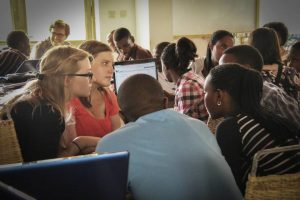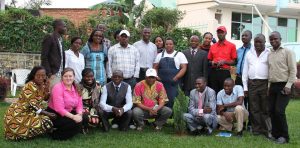The Power of Peacebuilding
 People often look confused when I tell them I work in “international peacebuilding”; for many, it’s a term they’ve never heard or considered before. I understand their confusion. At first glance, peacebuilding may seem like an abstract idea, and certainly not a profession. However, my short time as a Scoville Peace Fellow has proven what I’ve long suspected: peacebuilding is possible, practical, cost-effective, and essential for a functioning society.
People often look confused when I tell them I work in “international peacebuilding”; for many, it’s a term they’ve never heard or considered before. I understand their confusion. At first glance, peacebuilding may seem like an abstract idea, and certainly not a profession. However, my short time as a Scoville Peace Fellow has proven what I’ve long suspected: peacebuilding is possible, practical, cost-effective, and essential for a functioning society.Growing up in a post-9/11 America, national security was an omnipresent albeit murky idea. My generation inherited a world where resources are growing scarce, and the consequences can seem overwhelming. Stories of conflict are everywhere, but you don’t hear many stories of peace.
As a Fellow at the Alliance for Peacebuilding, my job is to tell the peace stories. These stories are incredibly powerful. AfP’s members have proven their ability to reduce violence from the Central African Republic, to Syria, to Guatemala. These programs are more than nice charity work; they keep us as Americans safe.
Research finds that exposure to violence leads to more violence. This violence knows no borders; there is no better example than how the conflict in Syria sparked a global refugee crisis. Conflict is dangerous and expensive for the entire world economy. The good news is peacebuilders have developed over decades methods to prevent conflict before it starts, saving money and lives.
Now more than ever, there is a need for peacebuilding in war zones and at home. Any person can become a peacebuilder, and every person can tell the peace stories.
http://www.allianceforpeacebuilding.org/

